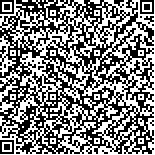| 引用本文: |
陈沙,王桂云,李荣慧,向振,吴结枝,卓海燕,刘平安,张国民.雌性大鼠手术去势骨质疏松症模型建立及评价[J].湖南中医药大学学报,2020,40(11):1315-1319[点击复制] |
|
| |
|
|
| 本文已被:浏览 4411次 下载 3731次 |
| 雌性大鼠手术去势骨质疏松症模型建立及评价 |
| 陈沙,王桂云,李荣慧,向振,吴结枝,卓海燕,刘平安,张国民 |
| (湖南中医药大学, 湖南 长沙 410208) |
| 摘要: |
| 目的 从动情周期、骨密度、骨组织形态结构和原代骨髓间充质干细胞(bone marrow mesenchymal stem cells,BMMSCs)生长曲线4个层次判定雌性大鼠手术去势造模是否成功。方法 30只2月龄SPF级雌性大鼠,随机平均分为空白组、假手术组和模型组3组。手术去势造模完成后次日起连续7 d对3组大鼠进行阴道脱落细胞涂片,判断动情周期。造模后第8天取左侧股骨组织做骨密度测定和HE染色,取右侧骨组织分离原代BMMSCs。结果 空白组和假手术组动情周期正常,模型组大鼠动情周期紊乱;骨组织HE染色显示模型组骨小梁稀少且间距加大;与空白组比较,假手术组骨密度和BMMSCs生长速率差异无统计学意义(P>0.05),与假手术组相比,模型组骨密度显著降低,BMMSCs生长速率显著下降,差异具有统计学意义(P<0.01)。结论 造模成功后的雌性大鼠动情周期紊乱,骨密度降低,骨小梁疏松,BMMSCs的生长缓慢,为骨质疏松症动物模型建立判定提供较全面的依据。 |
| 关键词: 去势雌性大鼠 骨质疏松症 动物模型 动情周期 骨密度 骨髓间充质干细胞 |
| DOI:10.3969/j.issn.1674-070X.2020.11.003 |
| 投稿时间:2020-05-19 |
| 基金项目:湖南省自然科学基金面上项目(2018JJ2297);湖南省教育厅科学研究项目(19A370、20A385);湖南中医药大学校级科研基金项目和精准科技扶贫项目(2018XJJJ24);湖南中医药大学中西医结合一流学科开放基金项目(2018ZXYJH25);湖南中医药大学大学生创新创业训练计划(2019-68)。 |
|
| Establishment of Osteoporosis Model by Surgical Castration in Female Rats and Its Evaluation |
| CHEN Sha,WANG Guiyun,LI Ronghui,XIANG Zhen,WU Jiezhi,ZHUO Haiyan,LIU Ping'an,ZHANG Guomin |
| (Hunan University of Chinese Medicine, Changsha, Hunan 410208, China) |
| Abstract: |
| Objective To determine the success of female rats' surgical castration model from four levels of estrus cycle, bone density, bone tissue morphology and primary bone marrow mesenchymal stem cells (BMMSCs) growth curve. Methods Thirty two-month-old SPF female rats were randomly and equally divided into 3 groups: a blank group, a sham operation group and a model group. The vaginal exfoliated cell smears were performed on the 3 groups of rats for 7 consecutive days after the completion of the surgical castration model to determine the estrus cycle. On the 8th day after modeling, the left femur tissue was taken for bone density determination and HE staining, and the right bone tissue was separated from primary BMMSCs. Results The estrous cycle of the blank group and the sham operation group was normal, and the estrus cycle of the model group was disordered. The HE staining of bone tissue showed that the bone trabecula of the model group was sparse and the spacing increased; Compared with the blank group, the differences in bone density and BMMSCs growth rate of the sham operation group had no statistical significance (P>0.05). Compared with the sham operation group, the bone density of the model group was significantly reduced, and the growth rate of BMMSCs was significantly reduced. The difference was statistically significant (P<0.01). Conclusion After successful modeling, female rats have estrous cycle disorder, decreased bone density, bone trabecula porosity, and slow growth of BMMSCs, which provide a more comprehensive basis for the establishment of osteoporosis animal models. |
| Key words: ovariectomized female rat osteoporosis animal model estrous cycle bone density bone marrow mesenchymal stem cells |
|

二维码(扫一下试试看!) |
|
|
|
|




